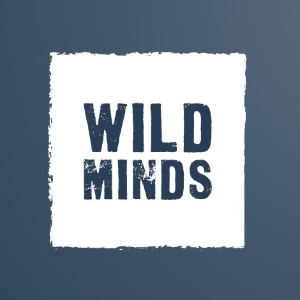Wild Minds Weekly: When certainty becomes dangerous
Hello beautiful people,
Last week we learned how the beliefs of Ellen G. White and the Seventh-day Adventists led to the birth the corn flake 🤢, and the massive push for the plant-based diet in western society.
If you didn’t catch last weeks newsletter you can read it 👉here.
There are at least a couple of lessons in that story.
One, is that we are more similar to our enemies than we are different. It would be easy to demonise Ellen G White. It would be easy to paint her as a tyrannical cult leader trying to control the population by malnourishing us through a diet full of processed grain.
But real life is rarely so simple. From what I can tell - she seemed genuinely interested in improving the health of others after experiencing her own health improve through the changes she made.
She had a problem, she found a solution that worked for her, and she wanted to spread the word. How many of us can say that we wouldn’t do the same?
The problem was, that her intentions led to the birth of the cereal industry and the silencing of a doctor who successfully reversed his patients diabetes. And here lies the danger:
“Most of the evil in this world does not come from evil people. It comes from people who consider themselves good.”
Her story serves as a reminder to us to:
A) not take yourself too seriously (today's health guru is tomorrow's lesson)
B) remember that good intentions can still lead to disastrous outcomes when combined with unwavering certainty
C) understand the origin of your beliefs so you can decide if they still hold up - or if they ever did
That leads us to the second lesson:
“This is how humans are: We question all our beliefs, except for the ones that we really believe in, and those we never think to question.” - Orson Scott Card
Ellen G White received a set of beliefs from her spiritual experiences. Many of them made sense and would seem obvious to even the most dim of creatures - the healing power of fresh air, pure water, and sunlight, for example. As a set, they weren’t questioned. So her followers set about spreading the word of the benefits of a plant-based diet, and building corporations to profit from that demand.
It is much harder to form your own beliefs about the world than it is to adopt a set of them.
Religion is a perfect example of this. Your beliefs about God are something you could arrive at through your own learning and experience, but it takes time, study, and often hardship. Religion offers an easy solution, you’re given a set of beliefs and instantly are welcomed as part of a community, which has its own benefits.
Many of us, after 15+ years of indoctrination in the education system, emerge from our youth with a predefined set of beliefs about how the world works, most of which isn’t accurate. We're taught that success means good grades → good college → stable career → retirement at 65, without ever questioning if that path leads to fulfilment or freedom (it used to, but definitely doesn’t anymore).
Now it’s fine to hold beliefs that are wrong, as long as you’re willing to suspend them and update them. Our greatest ability is our ability to adapt and learn.
You and I know that it wouldn’t be practical to completely suspend your beliefs about everything all the time. Life is too short for everyone to independently prove the earth goes around the sun, and that’s why we have day and night. There are certain things we just accept.
But there are certain beliefs that deeply influence how we spend our limited time on this earth. These are the beliefs that we should constantly reflect on,
the ones that influence the 3 biggest decisions in your life:
1. Who you’re with (your partner, friends, etc)
2. Where you live
3. What you do (for work and in life)
And continue to question and update those.
So there’s quite a fundamental lesson here:
White had a vision - a world of healthier, more spiritual people (a vision that many of us share).
Without that vision, she wouldn't have had the drive to spread her beliefs.
The vision itself wasn't the problem - it was her inability to question whether her beliefs were actually moving her toward that vision.
This is why having a clear vision for your life is so crucial. It gives you a reference point to evaluate every belief you hold (that’s also a key step).
Does this belief move me closer to my vision of freedom? Does this habit align with the person I want to become? Without a vision to measure against, we have no way to sort useful beliefs from destructive ones. That’s why the first step in The Path to Freedom to help you define your vision.
I’ll leave you with a question - what is one belief that drives the actions in your life, that you never question?
That’s all for today!
To your freedom and independence,
Rob
Wild Minds Community
PS.
If you want to break away from the mainstream beliefs of what a “successful” and “free” life is, then check out our latest resource - The Path to Freedom.
Billy’s done an incredible job putting together a guide of all the lessons learned on this journey. Don’t miss out. Click 👉here to start walking The Path to Freedom
You can check out the previous newsletters, and subscribe 👉here

